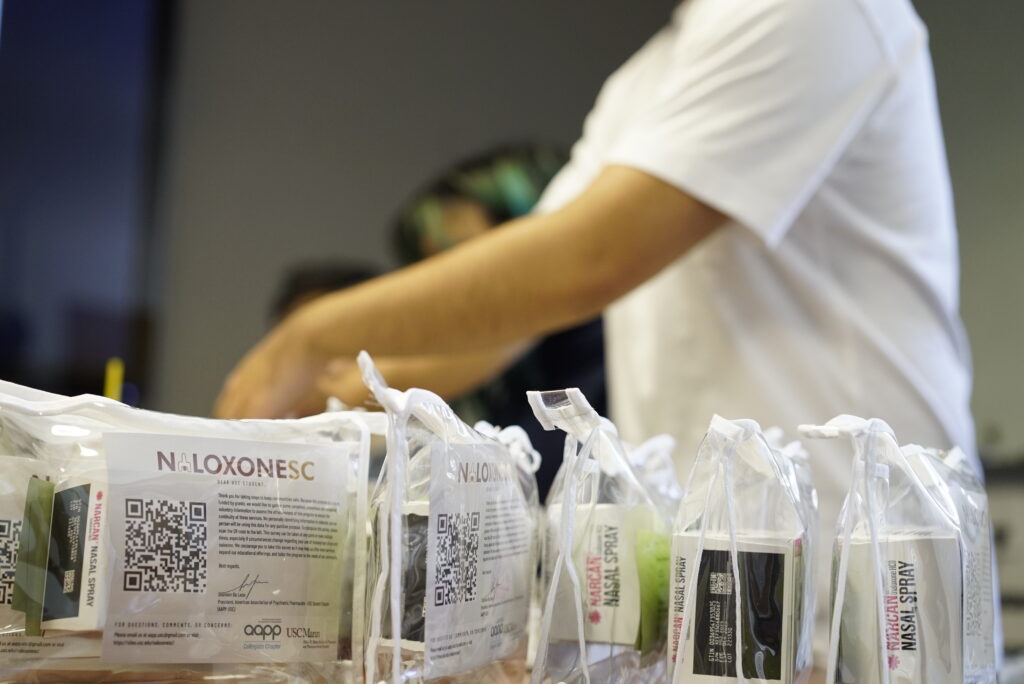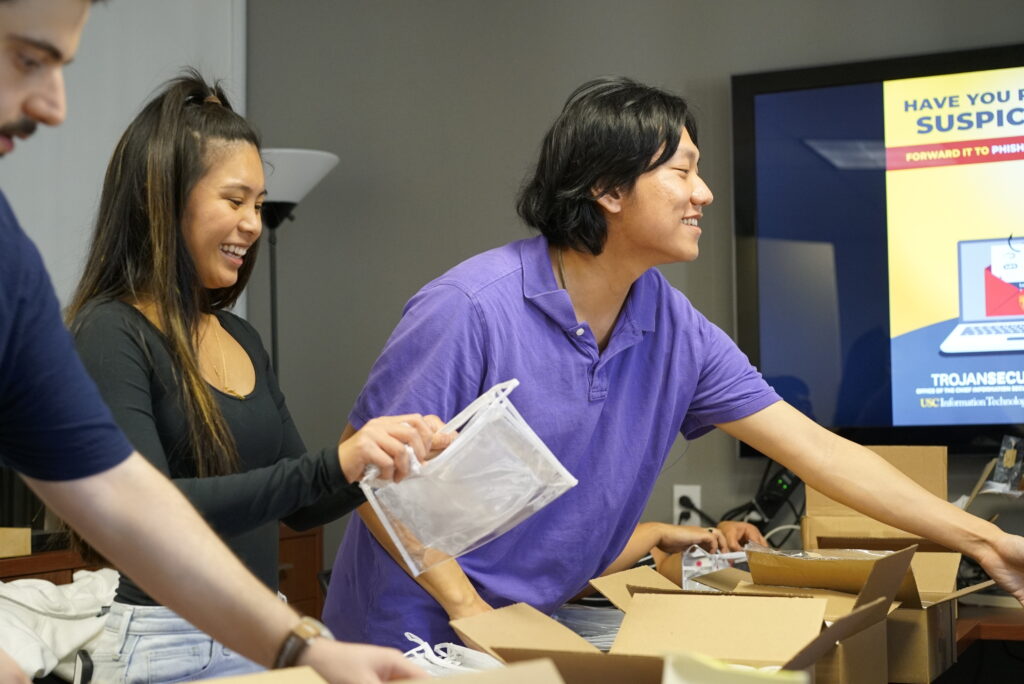USC students can now obtain the opioid-overdose medication naloxone at no cost—and without having to fill out any forms. The distribution is made possible by NaloxoneSC, an initiative of the USC Student Chapter of the American Association of Psychiatric Pharmacists (AAPP-USC).
NaloxoneSC makes the treatment available in the form of Narcan, an easily administered nasal spray. The kits assembled by students also include fentanyl strip tests for detecting the dangerous drug in other substances.
AAPP-USC founded NaloxoneSC in 2021 in response to the nationwide rise in opioid-related deaths.
“While the distribution of naloxone doesn’t eliminate the occurrence of overdoses, ensuring the availability of this medication can diminish harm and potentially save lives,” says Shannon De Leon, a third-year PharmD student and president of AAPP-USC.

Farhan Shirkhodaei, a third-year PharmD student and AAPP-USC’s director of naloxone distribution, emphasizes the importance of easy-to-access resources and peer education to encourage people to seek support.
“Historically, society viewed drug use as a moral failing,” Shirkhodaei says. “Unfortunately, that notion still persists, and harm-reduction programs such as NaloxoneSC have to work to ensure that people understand that stigmatizing drug use drives people away from interventions that can reduce overdoses, infections and other tragic outcomes.”
NaloxoneSC collaborates with USC Student Health to distribute Narcan at no charge. Students can pick up the medication at the Trojan Farmers Market on Wednesdays at McCarthy Quad, as well as on the first floors of the Engemann and Eric Cohen Student Health Centers.
NaloxoneSC distributes approximately 100 free kits per month, funded by the California Department of Health Care Services (DHCS) Naloxone Distribution Project.
“We felt that no student on campus should be without resources to help reverse an opioid overdose, or at least be knowledgeable to help prevent an opioid overdose should they choose to consume substances,” David Dadiomov, NaloxoneSC’s faculty advisor and assistant professor of clinical pharmacy practice at the USC Mann School, told the Daily Trojan.
Prior to Narcan being approved over the counter, students requesting naloxone kits from NaloxoneSC were required to watch a 10-minute video on naloxone administration and take a quiz on what they had learned.
Though the video and quiz are no longer required to obtain a kit, Shirkhodaei says, “NaloxoneSC would like to continue to encourage students to use these additional resources to increase their knowledge while reducing the barrier of actually accessing lifesaving supplies.”
Additionally, now that Narcan is available without a prescription, it is a covered benefit of the USC Student Health Insurance Plan (SHIP/Aetna) with no copay. It can also be purchased at the USC Pharmacies and the pharmaceutical supply vending machine at USC Village and in the Royal Street Parking Structure at the University Park Campus.
Even with this expanded access, however, challenges remain, according to De Leon and Shirkhodaei.
“A gap we’ve identified is the lack of awareness among many individuals regarding how to recognize symptoms of an opioid overdose or administer naloxone,” De Leon says. “Our enduring objective is to produce informative videos addressing the signs of opioid overdose, the use of naloxone and its proper administration.”
Shirkhodaei agrees, adding that “NaloxoneSC aims to continue providing harm-reduction supplies, as well as educating and training as many people as possible to use this medication with confidence and competence during emergencies.”


